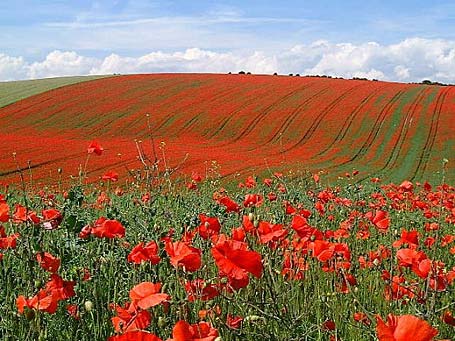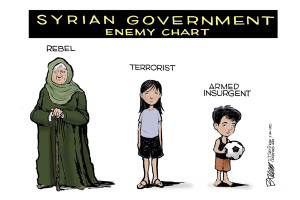Reflecting on Armistice Day, that is, Veteran’s Day, I want to recommend two memoirs, two novels, and one stage play dealing with war. Something a little outside the obvious choices.
Bugles and a Tiger – John Masters.
John Masters was one of the last British officers in India, where his family had served for generations. In the book he relates how he became an officer in a Gurkha regiment, how he came to love his men, and how he himself grew into a man. For Masters, this meant honour and loyalty. He bitterly regretted not defending a subordinate early on in his career. “I discovered now that being ashamed of yourself is worse than any fear. Duty, orders, loyalty, obedience – all things boiled down to one simple idea: whatever the consequences, a man must act so that he can live with himself.” The Gurkhas were mercenaries from Nepal, and their wives were frequently loose. Masters explains that he resisted the temptation by remembering that to act on it would be to betray the trust of his men. The depiction of his first assignment in the Afghan frontier in the 1930s is superb. Masters was a warm, intelligent, and sensitive writer who never lost track of how every person is an individual.
Quartered Safe Out Here – George MacDonald Fraser.
George MacDonald Fraser was nineteen when he was sent to fight the Japanese in the jungles of Burma. Genteel and academically inclined, he was the youngest in a section of very hard men from the
In one incident, MacDonald Fraser had been made to carry a large, unlabelled tin of fruit, and fallen down a ravine. After being nearly blown up by a Japanese ambush because of his youthful stupidity, he brings the fruit tin back to his unit. The ‘gastronomes’ and ‘Epicureans’ expect to add some fruit to their condensed milk, and are not at all pleased to discover that the tin contains carrots in brine.
The book is a powerful window into the experience and mentality of soldiers during war. MacDonald Fraser freely admits that the campaign in Burma was nasty, ugly, and brutal. He really has no patience for what he terms “virtue for mere appearance’s sake,” and explains very persuasively how attitudes were different in his generation.
The White Guard – Mikhail Bulgakov.
This is first and foremost a deeply spiritual book. It is also semi-autobiographical. The novel tells the story of a family in Kiev during the chaos of Russian Civil War, and portrays the collapse of old values, embodied by the officer’s ethos. People abandon their honour for self-preservation and their ideals for opportunism, and it is all subtly shown to be the outward manifestation of a massive spiritual crisis leading up to Judgment Day. Bulgakov is my favourite Russian writer and his ability to tell a story is unrivalled. One of the most moving passages involves the officer of a cadet unit. When the cadets are abandoned by the rest of the army during battle for the city, the officer commands them to rip off their insignia and flee for safety. He dies covering their flight with a machine gun, and this sense of duty- honour- is shown to be love, and ultimately godly.
The Good Soldier Schwejk – Jaroslav Hasek.
Without this book there would be no Catch-22, or any other book on the absurdity of military service and war. Schwejk is a middle-aged Czech in 1914, when they still (unhappily) belonged to the Austro-Hungarian Empire. He joins the army, it seems, with the sole purpose of making it a laughing-stock. He plays the good-natured fool, but always manages to subvert Austria’s oppressive authority. For example, when he receives a draft notice, Schwejk claims to suffer from rheumatism, but insists on being pushed to the recruiting center in a wheelchair. Along the way, he brandishes his crutches shouting patriotic victory slogans. Schwejk’s deliberate misadventures are vastly entertaining, and Hasek was one of Eastern Europe’s masters of the absurd.
Journey’s End – R. C. Sherriff.
There is no war play more powerful than this. Since 2014 is also the 100th anniversary of the First World War, it would be a disgrace not to mention Journey’s End. Ten years ago I visited a good friend in London who took me to the West End to watch a revival of Sherriff’s play. I was absolutely floored. The play is set in an officer’s trench in 1918, several months before war’s end. By this point, the cast has practically seen it all. They are four years into a war where going over the trenches is almost guaranteed to be a death sentence. The boredom is excruciating, but who wants to replace it with action? What they are all trying to do is to escape from the realities of war. Some plant flowers, some read, and some drink. Raleigh, a new, very young officer arrives at the front to serve under Stanhope, a man who is dating his sister, and whom he worships. Stanhope knows that as an officer, his duty is to stand by his men, and his obligation to society requires that he display nerves of steel. He refuses to take leave in order to escape danger like others are doing, but he has become an alcoholic. He is deathly afraid of letting people down. Raleigh is excited to be selected for a raid behind enemy lines, but when almost everyone else is killed, his naïve enthusiasm is gone, and he is killed shortly after. The play intersperses the horrors of war with flashes of brilliant, dark humour, and deals with topics from food to love to honour and cowardice. None of the characters are caricatures, and Sherriff is not preachy. The British comedy, Blackadder Goes Forth, is actually a tribute to the play, which is where it gets most of its ideas and characters.


